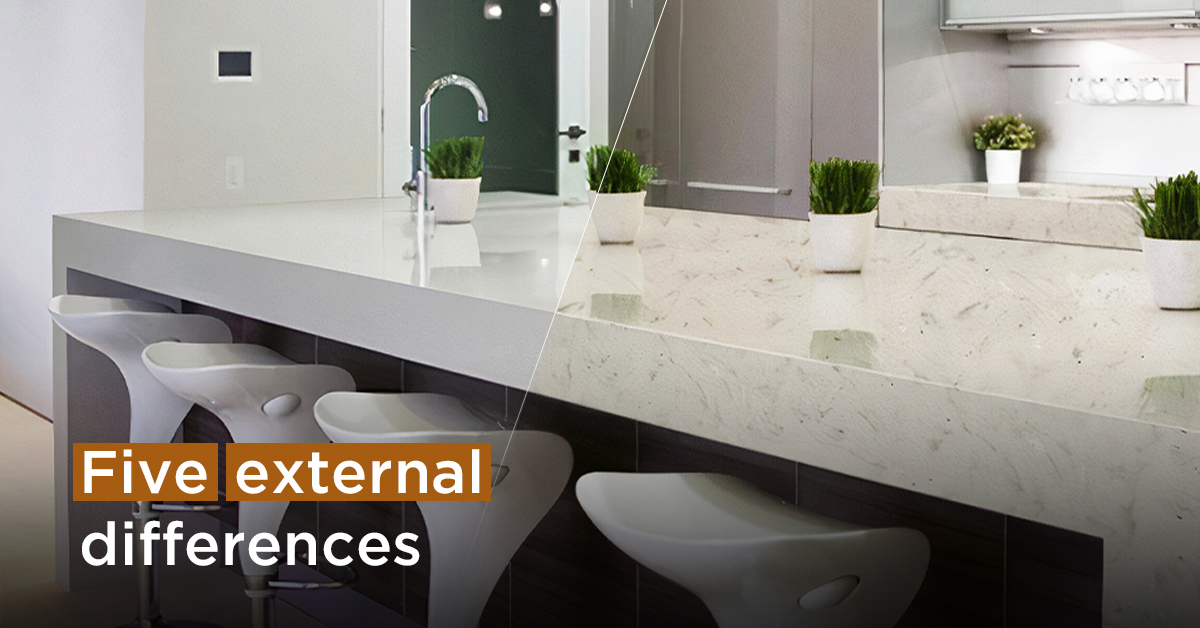How to distinguish quartz stone from acrylic solid surfaces?
Arvustused

Five external differences between quartz stone and acrylic solid surfaces
Acrylic solid surface has become the most popular choice for countertops due to its undeniable advantages:
- Reliability
- Durability
- Antibacterial properties due to a non-porous structure and an environmentally friendly composition.
- Safe for health and food preparation.
If these materials are so similar, what is their difference? Let us learn to distinguish these materials visually and with the sense of touch.
Here are the 5 most obvious external signs:
- Tactile sensations. The acrylic solid surface feels warm, unlike quartz stone, which remains cold even in the hottest kitchen.
- Seamless acrylic solid surfaces. The individual fragments are joined together without visible seams and form a single unit. When quartz stone fragments are joined, the small seams remain visible.
- The acrylic solid surface countertop can be installed with a washbasin without visible seams.
- Scratches on an acrylic solid surface can occur over time if you do not follow the care rules. Quartz stone is more robust. Therefore, the chances of damage occurring are minimal.
- The palette of quartz stone is closer to natural stone and conveys the colours, textures and patterns of natural marble, travertine, quartz and agate. The palette of acrylic solid surface is brighter and has many interesting colours and interspersed textures not found in nature.
Which of these materials will fit your desires the best?
First of all, you need be clear about the purpose and interior solutions for which you want to use this material.
- Quartz stone countertops are the right choice for those who do not want to put up with scratches.
- Quartz stone countertops are much harder than those made from acrylic, but they lack important features such as seamlessness, flexibility and ease of maintenance.
- Acrylic solid surface countertops can have curved shapes but always remain visually seamless.

